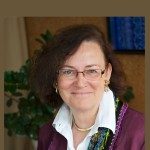Lien vers Pubmed [PMID] – 25798947
PLoS ONE 2015;10(3):e0120584
Usher syndrome (USH) is an autosomal recessive disorder characterized by combined deafness-blindness. It accounts for about 50% of all hereditary deafness blindness cases. Three clinical subtypes (USH1, USH2, and USH3) are described, of which USH1 is the most severe form, characterized by congenital profound deafness, constant vestibular dysfunction, and a prepubertal onset of retinitis pigmentosa. We performed whole exome sequencing in four unrelated Tunisian patients affected by apparently isolated, congenital profound deafness, with reportedly normal ocular fundus examination. Four biallelic mutations were identified in two USH1 genes: a splice acceptor site mutation, c.2283-1G>T, and a novel missense mutation, c.5434G>A (p.Glu1812Lys), in MYO7A, and two previously unreported mutations in USH1G, i.e. a frameshift mutation, c.1195_1196delAG (p.Leu399Alafs*24), and a nonsense mutation, c.52A>T (p.Lys18*). Another ophthalmological examination including optical coherence tomography actually showed the presence of retinitis pigmentosa in all the patients. Our findings provide evidence that USH is under-diagnosed in Tunisian deaf patients. Yet, early diagnosis of USH is of utmost importance because these patients should undergo cochlear implant surgery in early childhood, in anticipation of the visual loss.

